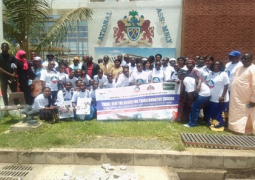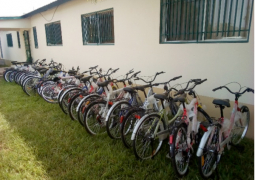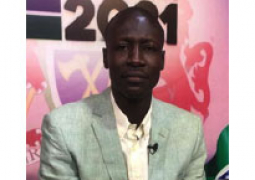The new constitution , gazetted on 14th August 2024, has sparked debate among citizens regarding the omission of the most crucial clause that guarantees free secondary education for all Gambians.
This change in the constitution has raised concerns among parents, educators, and advocates, who expressed concern that the removal of the clause could severely limit access to education for many young people in the country.
Sharing her opinion, Ma-Nyima Ceesay, a guardian and single parent of three, revealed that the free secondary education has been helping lots of vulnerable families to get their children access education.
“However, the removal of that will have a huge burden on me, as already as a single mother, my children and I feed from hand to mouth and only one is currently about to start grade 10. The other two are yet to. Therefore, if that is removed this will only increase the burden on me,” she lamented.
Dawda Manneh, a father of seven children with two wives, expressed similar sentiments.
“Currently, even the secondary education is free, the expenses we make on learning materials is a lot. Thus, if the free is completely deleted and the new draft proceeds to be passed, that will only increase the poverty status of families as many families will not be able to pay for it.”
Sedia Ceesay, a father of four also raised similar concerns. “We understand that a new constitution is needed; however, we should make sure the content is favorable to every citizen. Secondary education should remain free to ensure that every child accesses it.”
Also reacting to the issue, Madi Jobarteh, a prominent human rights advocate, who wonders ‘if the deletion was an oversight’, explained that the 1997 Constitution under Section 30 states that basic and secondary education shall be free, compulsory and available to all, which also talk about tertiary education will be made available and progressively be made free which is in Section 30c.’
“Now, looking at the 2020 draft, the section on the right to basic and secondary education, were put together and it states shall be made available and free.”
The renowned right advocate, however, revealed that in the 2024 draft constitution, it completely deleted free secondary education and maintains basic education to be free, while tertiary and vocational education be made available and progressively to be made free.
“How could you skip secondary education,” he asked?
“If basic education is made free and eventually to make tertiary free and secondary is omitted then you are going to create a socio-economic imbalance and a weak future for the country because the very space that built the foundation will be scanty because not many people are going to be able to afford because secondary education is very expensive.” he said.
Lamin Sambou, a secondary school teacher for eight years, pointed out that schools especially public schools are filled with vulnerable students, who barely could afford learning materials.
“The lawmakers and the executive should be aware that an educated population is essential for the country's growth, fostering a skilled workforce capable of contributing to various sectors. The omission of this clause is seen as a step backward in the fight for equitable access to education, while undermining efforts to promote social mobility and reduce poverty.” he stressed.
In the explanatory notes, he added, that the government indicated that it is “constrained” to prioritise free education for basic school rather than extend it to both basic and senior secondary education.
“The constraint is imposed by the resources at the disposal of the government. Imperatively, government must aspire to guarantee that every child completes the most critical years of schooling by using available resources to realise that aspiration.”
The explanation added that the omission does not undermine the importance of providing free secondary education if limited resources did pose a formidable constraint.





